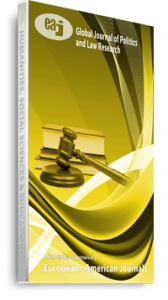This study titled: challenges of the Implementation of Universal Basic Eduction programme in Yobe State, Nigeria and prospects for 2015 and beyond has largely been shaped by the recent events in the country, specifically the problems confronting the education sector and the Nigerian government responses; the government efforts in initiating various measures through its policies, programmes and institutions to improve the education sector in Yobe state and Nigeria generally have become a major source of concern to observers and scholars. The study therefore attempted assesses the implementation of the Universal Basic Education in Yobe state and its prospect for 2015 and beyond. To achieve this objective therefore, the study used the primary and secondary sources of data collection. Charts for data analysis were drawn using the 2003 Microsoft Excel XP Version10 package while the Analysis of Variance (ANOVA) and Spearman Rank Order (RHO) were used to test the null hypothesis. A sample of 243 respondents was randomly selected from six local government areas of Yobe. The System theory was used as the main theoretical framework. From the data analyzed, it was found that the programme recorded a very poor performance in the area of pupils’ teacher ratio, where the minimum ratio of 1:40 is abuse. In all the schools visited both primary and junior secondary sections had the minimum of a teacher to fifty pupil (1:50 and above). Again, it was observed that the qualifications of teachers ranged from certificate A- 3-year post-secondary education, certificate A- 4-years post middle, Diploma in Basic Education; Senior School certificate holders and second degree holders with the least number. The study thus recommends amongst others that more qualified teachers should be recruited and special salary structure should be designed for them, by doing that at least many people will develop interest for the teaching profession and shortage of teachers will be overcome in Yobe state, Nigeria
Keywords: Implementation. Universal Basic Education, Nigeria, Programme, Yobe state

